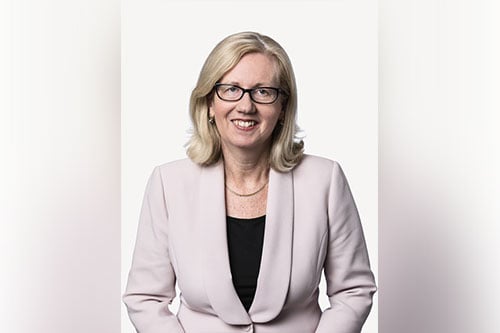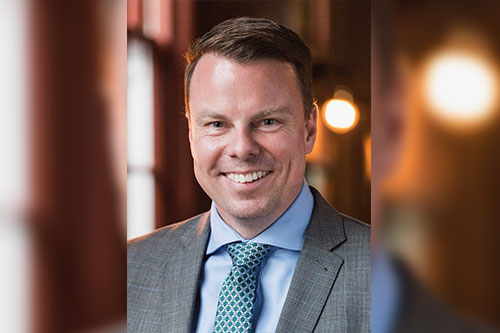

As the COVID-19 pandemic slowly subsides, the risk of workers’ compensation claims relating to the virus is slowly mounting on the insurance industry.
After a host of workers across the nation lodged workers’ compensation claims related to the virus, industry leaders are being warned to maintain social distancing and strict hygiene measures in their workplaces. Maintaining employees’ psychological health is also encouraged.
“SafeWork NSW advises that simple steps that enable physical distancing between people, effective personal hygiene and cleaning and disinfection of high touch work surfaces can make a significant difference to preventing the transmission of COVID-19,” said SIRA chief executive Carmel Donnelly (pictured above).
“The State Insurance Regulatory Authority (SIRA) has been proactively reporting COVID-19 related workers’ compensation claims on its website using data provided by insurers. This data is updated daily.”
Donnelly revealed that as of 4pm on April 23, the regulator had been made aware of a total of 180 notifications of COVID-19 related workplace injuries or exposure in NSW.
“SIRA anticipates that workers’ compensation notifications related to COVID-19 exposure and injury will grow in line with the national and state COVID-19 infection rate,” she said.
“A worker can claim workers’ compensation entitlements if they test positive to COVID-19 and it was contracted at work. Insurers will consider the circumstances of each case to determine if the injury is work related. SIRA is closely supervising how insurers manage these claims.”
In response to the high number of workers’ compensation claims and the likely future increases, SIRA is developing a new COVID-19 related Standard of Practice that will set expectations for how claims are handled.
“It is aimed at expediating claims management decisions, reducing barriers and supporting workers through their recovery and return to work. SIRA will be consulting on the Standard of Practice next week,” Donnelly said.
Additionally, employers are also responsible for ensuring their workers’ mental health is not impacted by COVID-19.
“During these challenging times, employee mental health is more important than ever. Leaders and businesses should have a plan in place that protects employee health while also maintaining business operations,” an iCare spokesperson said.
“iCare has been working to support businesses during COVID-19, including, where applicable, placing premiums on hold or reducing wages to reflect the current circumstances of those businesses impacted by the pandemic.”
Maintaining flexible working policies, implanting strict hygiene procedures in the workplace and supporting employees with clear and regular communication with extra support services if needed are just some of the steps iCare has provided NSW businesses.
“With many staff now working from home, it’s important businesses know they continue to have a responsibility to ensure workers have a safe environment to work, even when at home and in other locations away from the normal workplace.”
The expectation of employers protecting their staff from infection is strongly echoed by regulators, with state WorkSafe bodies warning business leaders must manage risks or face penalties. Insurance Business Australia contacted all state WorkSafe departments for comment.
“Victorian employers must take every reasonable step to protect workers from risks to both their physical and mental health, this includes managing risks associated with coronavirus (COVID-19),” a WorkSafe Victoria spokesperson said.
“Employers should have systems and processes in place that allow them to respond to OHS risks as they emerge, including slowing the spread of coronavirus (COVID-19).
“This should include physical distancing measures, such as working from home, ensuring good hygiene practices, and maintaining work plans so employees can be isolated if they have had contact with the coronavirus (COVID-19).”
WorkSafe Victoria, which had received 16 claims relating to the virus as of April 22, says workplaces that fail to adequately meet the health and safety expectations designed to combat the spread of COVID-19 are liable.
“WorkSafe can take action against workplaces that fail to appropriately manage these risks,” it said.
Additionally, WorkSafe Queensland revealed it had received 31 workers’ compensation claims relating to COVID-19, with 21 regarding mental health conditions.
“As at April 23, 2020, 31 claims have been lodged relating to COVID-19. Of these, 10 regard contracting the virus, while 21 are for mental health conditions as a result of COVID-19,” it said. “Of the 31 claims in total, 14 have been accepted, nine are awaiting decision, six have been withdrawn, and two were denied. The accepted claims relate to travel agents or other workers returning from overseas work trips, plus one claim from a restaurant worker.”
Likewise, WorkSafe WA also warns employers to develop a risk management approach to “workplace psychosocial hazards,” to protect and mitigate the impact of the pandemic on employees’ mental and physical wellbeing.
“Setting appropriate work arrangements is integral to promoting positive mental health in the workplace,” WorkSafe WA said.
“Social distancing must be followed at work as far as practicable, based on principles published by the Department of Health. Risk assessments should be conducted and suitable control strategies implemented. Appropriate social distancing measures will depend on the workplace and work activities being conducted,” the regulator concluded.
The Department of Health says health and safety measures at work include stopping shaking hands, cancelling non-essential meetings, promoting good hand, cough and sneeze hygiene, supplying hand sanitisers for all staff, regularly cleaning and disinfecting surfaces, as well as avoiding non-essential travel.
“Where it is not practicable to implement social distancing, consideration should be given to whether the task or service is essential and whether the risks can be adequately reduced. Non-essential services should be discontinued if risks cannot be reduced,” WorkSafe WA said.
WorkCover WA, the regulator in charge of managing insurance claims, says it has not received any COVID-19 workers’ compensation claims in the state – but it is aware of insurers who have.
“As at April 09, 2020, there were no claims resulting from work-related exposure to COVID-19. One insurer, however, has reported five existing claims which have been impacted by factors relating to COVID-19 (e.g. delays in surgery),” a WorkCover WA spokesperson said.
“Other insurers are likely to also be in receipt of claims affected by COVID-19, but these have not yet been reported to WorkCover WA. These low preliminary figures do not suggest a high number of future workers’ compensation claims, noting however this situation may change.”
WorkSafe NT, on the other hand, told Insurance Business Australia that the body had not received any reports of COVID-19 workers’ compensation claims in the state, despite 28 confirmed cases of the virus to date.
“There are no worker’s compensation claims related to COVID-19 in the Northern Territory. To date, there have been 28 confirmed diagnoses of COVID-19 in the Northern Territory, all connected to international or interstate travel,” a WorkSafe NT spokesperson said.
“In line with the advice from health authorities, physical distancing and good hygiene practices are the core principles employers should adopt when managing the risks of exposure to COVID-19 in the workplace.”
As daunting as the circumstances may seem for the insurance and broking sectors, ANZIIF’s Damian Falkingham (pictured below), general manager industry engagement, says the industry isn’t in isolation when addressing these concerns.

“There are very few businesses not significantly affected by the current COVID-19 pandemic,” said Falkingham.
“ANZIIF has implemented working from home and social distancing measures to ensure the safety of its staff, members, and external stakeholders. This is an opportunity for us all to reimagine the way we work.
“During this time of extended isolation, it’s important to ensure the continuation of regular communication with all staff. At ANZIIF, we have continued to support the mental and physical health of staff and continued our internal social events which are now held online,” Falkingham explained.
He added that now is the time to provide flexibility to workers and further capitalise on technology and digital resources to collaborate and connect.
